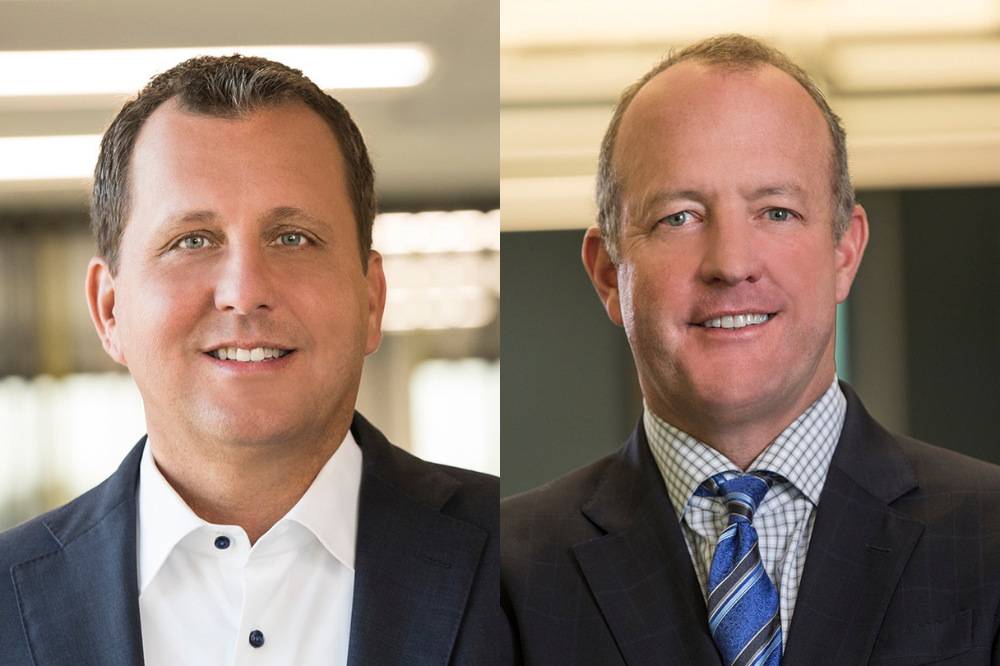Broker on diversifying the "male, pale, and stale" insurance workforce

“Then you look around the conference, and sure enough, there’s a bunch of old, boring, white men like me sitting in the audience, and you chuckle at that, until you realize it’s not funny at all.”
Calls for a more inclusive workforce are intersecting with the industry’s ongoing talent shortage. For Bill, CEO of MJ Insurance, the industry has a lot to offer talent of diverse backgrounds. But it’s up to insurance companies to create opportunities.
“If you’re curious and you want to learn, you can get exposed to virtually any industry through insurance; every industry needs some type of risk management,” Bill told Insurance Business.
“I think it’s a great opportunity to get exposed to different industries and you can also learn from experienced peers that have worked in various disciplines.”
Educating the next generation
To help make risk management and insurance education more accessible, MJ Insurance’s non-profit arm, MJ Foundation, has established a new scholarship in the Andre B. Lacy School of Business at Butler University in Indianapolis.
Two students from diverse backgrounds and financial need will be selected as scholarship recipients every year beginning the next academic year. Preference will be given to those majoring in risk management and insurance, but candidates studying business are also eligible for the award.
The foundation has committed $750,000 for the annual scholarship, which aims to both foster diversity and advance education in the insurance industry.
“My father, Michael M. Bill, who founded MJ Insurance in 1964, has always been a big proponent of education,” Bill said.
“One of the key pillars of the MJ Foundation is education. We want to support multicultural students with financial need that have an interest in our industry, but may have limited opportunities, by giving them financial assistance.”
According to the two leaders, the MJ Foundation scholarship tackles two issues in their community: poverty and the lack of educational entry points into insurance.
“The scholarship with Butler [University] will facilitate pathways to the insurance and risk management industry, and to a degree, it can also help break the cycle of poverty that folks of diverse backgrounds are statistically more likely to be in,” Loftin said.
The scholarship also expands the partnership between MJ Insurance and the Andre B. Lacy of School Business, one of only 58 risk and insurance programs in the US. The school reports a 100% placement rate for graduates.
“The Lacy business school has done a great job creating a structure that strongly encourages experiential learning,” said Loftin.
“All students have to get hands-on experience to supplement their academic learning by starting up a small business during their undergraduate studies.”
Attracting diverse talent
With a large portion of the insurance industry’s workforce approaching retirement, Loftin said it’s critical to boost education opportunities and attract talented young individuals to the profession.
“We’re hoping, in some small way, this [scholarship] starts to bring awareness that insurance is a really good industry to pursue, and that it’s talent starved,” said Loftin.
“In the past, insurance has stereotypically been a high-pressured sales job. Young folks, especially, don’t have a lot of experience consuming it. They don’t understand that what we do is critical to the economy and to families, by protecting what they love and have built.
“The industry has done a much better job over the last 10 years of promoting insurance as a rewarding and thoughtful consulting career that not just high-pressure selling – and in fact, there’s very little high-pressure selling, when you really unpack it.”
The two leaders acknowledged that a diversity, equity, and inclusion (DE&I) strategy for talent is no longer just a nice add-on, but the path of the future for insurance.
“The industry needs it not just because it’s the right thing to do. It drives a tremendous amount of diverse thought into companies, which is very much needed to also align more with a diverse population,” Loftin said.
“As the demographic shift continues, our customers will primarily come from diverse backgrounds. So, if for no other reason, DE&I is a mandate to do business.”
How can the industry create more opportunities for diverse talent? Share your ideas in the comments below.





